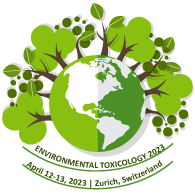
Biography
Biography: Mr Harithas Aruchchunan
Abstract
During the last few decades the electrical and electronics industry has experienced an enormous growth in Sri Lanka. E-waste is generated without proper handling methods of EEE. It has been unprecedented in Northern province in post war context and COVID19 pandemic scenarios. The objective of this research was to assess present status of e -waste management among households and other stakeholders in urban and peri urban areas in the Northern province. The study used descriptive survey design .This research has tried to understand the existing gap, by identifying the different barriers to and drivers for the adoption of e-waste management measures through the perceptions of the different stakeholders involved in e -waste issues. This research investigated awareness level of e-waste in Northern province. The total sample of households and other stakeholders (repairers, waste collectors etc) in the all 5 districts were 66 and 55 respectively. Data collected through the digital questionnaires (Kobotoolbox and Google forms), key informant interviews and observations. The findings of the study revealed that households respondents were having good understanding on meaning of e-waste than other stakeholders . As a result of all citizens received SMS on national e-waste collection through post offices in this year. Most of the e-waste handed over to local government bodies and sold as trash to mobile waste collectors , such e-waste should be disposed of with utmost care, since they can contain an alarming range of toxic materials. In Northern province, there is growing concern coupled with increasing consumptions, increasing accumulation, increasing usage of electricity and generation of e-waste over time which is primarily due to lack of adequate facilities in local government and absence of recycling possibilities to deal with the e-waste. In addition there is no existing policy framework for dealing with e-waste. The awareness of e -waste management, knowledge on local and international laws, special treatment, advanced technology, health and environmental risks of e-waste were low amongst stakeholders. The findings show that disposal methods among households(46%) and other stakeholders(87%) were storing than other methods. Another finding was found that decreasing trend of repairing and reusing the EEE generally and increasing trend of purchasing EEE among households in COVID19 pandemic. The major e-waste causes encompass rapid obsolescence rate, breakage, demands for extra and innovative models or design of electronic gadgets. Most of the stakeholders do not know what happened to e-waste which is collected from their stores. Citizens should be made aware of e-waste with novel ideas. Besides all stakeholders should work jointly with local government, CEA etc to ensure proper e-waste management and establish the e-waste collection and recycling facilities.

